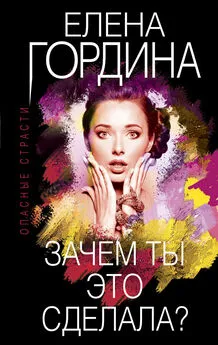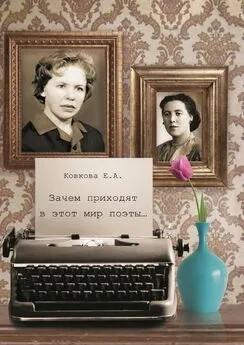Елена Миклашевская - Зачем им столько времен?
- Название:Зачем им столько времен?
- Автор:
- Жанр:
- Издательство:Литагент Ридеро
- Год:неизвестен
- ISBN:9785005033345
- Рейтинг:
- Избранное:Добавить в избранное
-
Отзывы:
-
Ваша оценка:
Елена Миклашевская - Зачем им столько времен? краткое содержание
Зачем им столько времен? - читать онлайн бесплатно ознакомительный отрывок
Интервал:
Закладка:
3. Why did Sid run downstairs crying for Aunt Polly?
4. Why did Aunt Polly begin to cry and laugh at the same time?
5. What were the dental instruments Mary brought from the kitchen?
25. «Three Men in a Boat» by Jerome K. Jerome
Vocabulary: put up a tent – ставить палатку
Tenses to use: Present Simple, Present Continuous, Past Simple, Past Continuous, Present Perfect.
Note: in the scene the narrator imagines some verbs are already in the right form to show that the imaginary events are mostly in present tenses.
We (sit) in my room (discuss) our journey when Harris (ask), «Where we (sleep) at night?»
George and I (not/like) the idea of sleeping in the hotels. We (want) to sleep outside.
«And what about when it (rain)?» Harris (ask).
I could imagine this scene easily…
…It is evening. You are very wet. There is a lot of water in the boat and everything is wet, too. Two of you (try) to put up the tent. You already (put) up your side of the tent, but the other man (not/do) anything yet. You just (tied) the first ropes to the ground. Suddenly he (pull) the tent from his side and (destroy) all your work.
«What you (do)?» you cry.
«And what you (do)?» he cries.
«You (pull) out the ropes from my side!» you answer.
You (shout) at each other until the tent (fall) down.
The third man is in the boat. He already (prepare) a simple meal and now he (want) to know why you two (not/finish) with the tent yet.
At night you (dream) that a large animal suddenly (sit) down on you. You (wake) up and (understand) that something terrible (happen). At first you (think) that the end of the world (come). There is something on you that (not/let) you breath. You (fight). You (shout). At last, you (find) your head in the fresh air. Near you, you (see) Harris.
«Oh, it (be) you. What (happen)?» you (ask).
«The wind (blow) down the tent,» he (answer).
At that moment, you (hear) a voice from below, «Get off my head!»
Answer the questions (use present tenses):
1. What are the evenings in the tent in rainy weather like?
2. Why are two men angry with each other while they are putting up the tent?
3. What has the man in the boat already done? What does he want to know?
4. What happens at night?
5. What do two of the friens find out when they hear «Get off my head!»?
26. «Robinson Crusoe» by Daniel Defoe
Vocabulary: cave – пещера
Tenses to use: Present Simple, Past Simple, Future Simple, Present Perfect, Present Perfect Continuous.
My life on the island (go) on. I often (think), «I (live) here for ten months. During those months I (work) hard on my cave and my fence. I (do) a lot of work already. It (be) time to find out more about the rest of the island.»
So, one day I (set) out to the opposite side of the island. During my journey, I (see) that my house (be) on the worst side of the island, because I (find) many greener and much more beautiful places. But I (not/want) to move. It (be) my home.
I (have) a lot of food. But there (be) one thing that I (want) very much – hot soup. «I already (learn) to make pots to keep my food in,» I (say) to myself, «but for a long time I (want) to make a harder, stronger pot to cook in right on the fire.»
Then, one day, I (be) lucky. I (make) some new pots and (put) them on the fire.
«This time I (make) the fire very, very hot,» I (think) many hours later, «and my pots (be) still there. They (stay) in this hot place for a long time. May be, this time they (be) strong enough to cook in.»
And I (be) right. That night I (have) hot water for the first time on the island.
I never (stop) thinking about escape. When I (travel) to the other side of the island, I (see) many islands far away in the sea and (say) to myself, «I (plan) to escape since I (be) brought here by the storm. Perhaps, one day I (be) able to get to England.»
I (decide) to make a boat. I (cut) down a big tree, (cut) off its branches and (begin) to make a long hole in it. It (take) a long time, but I (keep) telling myself, «Soon I (have) a fine canoe. I (work) on it for six months already, and I (finish) most of it.»
How stupid I (be)! My canoe (be) too heavy, and I could not move it! I (pull) and (push) it and (try) everything, but it (not/move). I (be) very unhappy for a long time after that. Two years later, I (make) myself a smaller canoe, but I (not/try) to escape in it. The boat (be) too small for a long journey, and I (not/want) to die at sea.
Answer the questions:
1. What did Robinson want to do after ten months on the island? What did he find out during the journey?
2. What was the problem about the pots he made? How did he manage to make a pot to cook in?
3. What did Robinson do to escape from the island? What mistake did he make?
27. «The Wonderful Wizard of Oz» by Frank Baum
Vocabulary: raft – плот, pole – шест, stick (stuck, stuck) – застревать, hang (hung, hung) – висеть, stork –аист, bottom – дно, vanish – исчезать
Tenses to use: Present Simple, Past Simple, Present Continuous, Past Continuous, Future Simple, Present Perfect
Dorothy and her friends (sail) across the river on the raft. They all (have) poles to push the raft through the water. Suddenly the Scarecrow (push) his pole so hard that it (stick) in the bottom. In a moment he (hang) on the pole in the middle of the river.
The friends (come) to the river bank. When they (sit) on the grass thinking what to do to save their friend, a large Stork (land) near them.
«Who (be) you?» he (ask). Why you (come) here?»
«We (go) to the Emerald City, but we (lose) our friend», (say) Dorothy.
The Stork (look) at the river. «I never (see) scarecrows in the middle of the river. When he (get) there?»
The Stork (be) a serious bird and (want) to know all the details.
«An hour ago. He (be) there for a long.»
«You (decide) what to do?»
«No, but if you (bring) him back, we (thank) you ever.»
«I (try)», (say) the Stork. «But if he (be) too heavy, I (drop) him in the river again.»
With these words the big bird (fly) into the air to where the Scarecrow (be), (take) him by the arm and (carry) him to the friends.
The Scarecrow (be) happy.
«You (save) me», he (say) to the Stork. «I (be) on the river for a long time and (be) afraid to stay forever. If I ever (get) brains, I (find) you to do some kindness.»
«It (be) all right», (answer) the Stork. «I always (like) to help anyone in trouble. Now I must go.»
The Stork (fly) into the air and (vanish) in the blue sky.
Answer the questions:
1.What happened when the Scarecrow pushed his pole into the bottom too hard?
2.What were the friends doing when the Stork landed near them?
3.What did Dorothy ask the Stork?
4.What did the Scarecrow say to the Stork? What was he afraid of?
28. «The Wonderful Wizard of Oz» by Frank Baum
Vocabulary: cyclone – ураган, prairie – степь, cellar – подвал
Tenses to use: Present Simple, Past Simple, Present Continuous, Past Continuous, Future Simple, Present Perfect
Dorothy (live) in the middle of the great Kansas prairie with Uncle Henry and Aunt Em. They (be) farmers.
When Dorothy (stand) in the doorway and (look) around, she (can) see nothing but the grey prairie.
That day Dorothy (stand) in the doorway with Toto, her dog, in her arms and (look) in the sky which (be) even greyer than usual. Aunt Em (wash) the dishes.
Suddenly they (see) Uncle Henry running from the field.
«The cyclone (come)!», he (cry). «Get into the cellar! I (look) after the animals». With these words he (leave).
«Quick, Dorothy», Aunt Em (call), «run to the cellar!»
But Toto (jump) out of Dorothy’s arms and (get) under the bed. He (be) very afraid of the cyclone. Dorothy (rush) after him.
A strange thing then (happen). The house (turn) around two or three times and (begin) to go up, up, up into the sky. The north and south winds (meet) where the house (stand) and (make) it the center of the cyclone.
The house (go) higher and higher, and when it (get) to the top of the cyclone, the wind (carry) it far away.
Dorothy (sit) on the floor.
«What (happen) to us?» she (think). «And what (happen) to Uncle Henry and Aunt Em if we (die)?»
Hours (pass) away, but the house (fly). Dorothy (find) her bed and (lie) on it. Soon she (fall) fast asleep.
Answer the questions:
1. Where did Dorothy live?
2. What was each of them (Dorothy, Aunt Em, Uncle Henry) doing when the cyclone came?
3. Why did Dorothy rush into the house?
4. What happened to the house when the north and the south winds met where it stood?
5. What did Dorothy do when the house was flying in the sky?
29. «Three Men in a Boat» by Jerome K. Jerome
Vocabulary: lock – шлюз, the rest – остальное
Tenses to use: Present Simple, Past Simple, Future Simple, Present Continuous, Past Continuous. Present Perfect, Present Perfect Continuous, Past Perfect.
By four o’clock we (do) our shopping. We (go) back to the boat and (move) off along the river again. At Hampton lock we (find) out that we (have) no water left. So, we (go) to ask the lock-keeper for some. George (speak) for us,
«Oh, please, can you give us a little water?»
«Of course,» the old man (say), «just take what you want and leave the rest».
«Thank you,» George (reply) and (look) around, «but where it (be)?»
«It (be) where it always (be),» (say) the man, «it (be) behind you».
«River?! But we can’t drink the river!»
«Of course, not. But you can drink some of it and leave the rest».
We (get) some water in another house.
George (say) that he (see) many bits of food in the boat. He (promise) to make a good supper of what we (not/use) before. He (put) into the pan everything he (find). While he (cook), Montmorency (watch) all this. Then he (walk) away. He (come) back with a dead rat in his mouth. Harris (say), «It (be) all right if we (put) the rat in». But George (not/ want) to try new things.
We (have) a very good meal. After supper George and I (decide) to go for a walk in Henley as we never (be) there before.
Answer the questions:
1.What did the friends find out after they had done some shopping?
2.Why didn’t they follow the lock- keeper advice?
3.What sort of supper did they cook that day?
4.Why did George refuse to put the rat into the pan?
30. «Three Men in a Boat» by Jerome K. Jerome
Vocabulary: lock gate – ворота шлюза, seem – казаться, be trapped – застрять
Tenses to use: Present Simple, Past Simple, Past Continuous, Past Perfect
It (be) a lovely day. By the time we (come) to the lock in Wallingford, we already (pass) the locks in Streatley and Cleeve. We (plan) to spend evening in a nice little hotel.
There (be) a lot of boats in the lock, and a man (take) photos of them. I (not/see) him at first, but suddenly George (start) to fix his hair and brush his trousers. My first idea (be) that he (see) a girl he (know). But then I (see) the photographer. Our boat (be) the first in the lock, so I (want) to look nice in the photo, too. We (stand) there and (wait) for the important moment when somebody (cry),
«Hey! Look at your nose!»
Читать дальшеИнтервал:
Закладка:
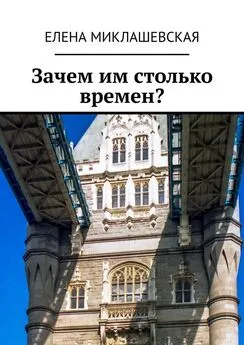

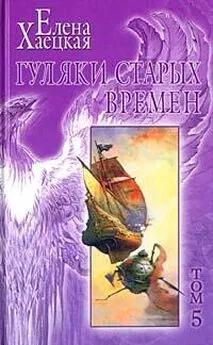
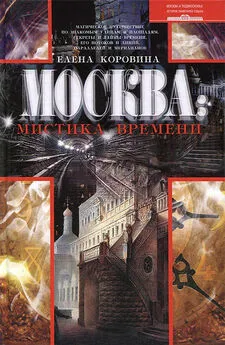
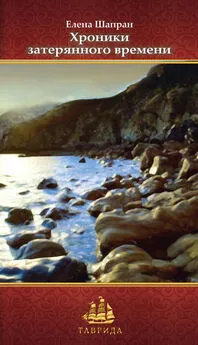
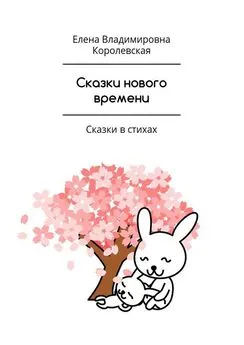
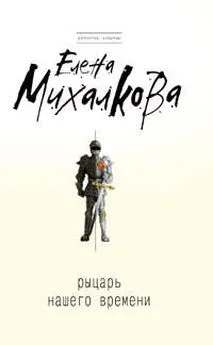
![Елена Гордина - Зачем ты это сделала? [litres с оптимизированной обложкой]](/books/1145711/elena-gordina-zachem-ty-eto-sdelala-litres-s-opti.webp)
